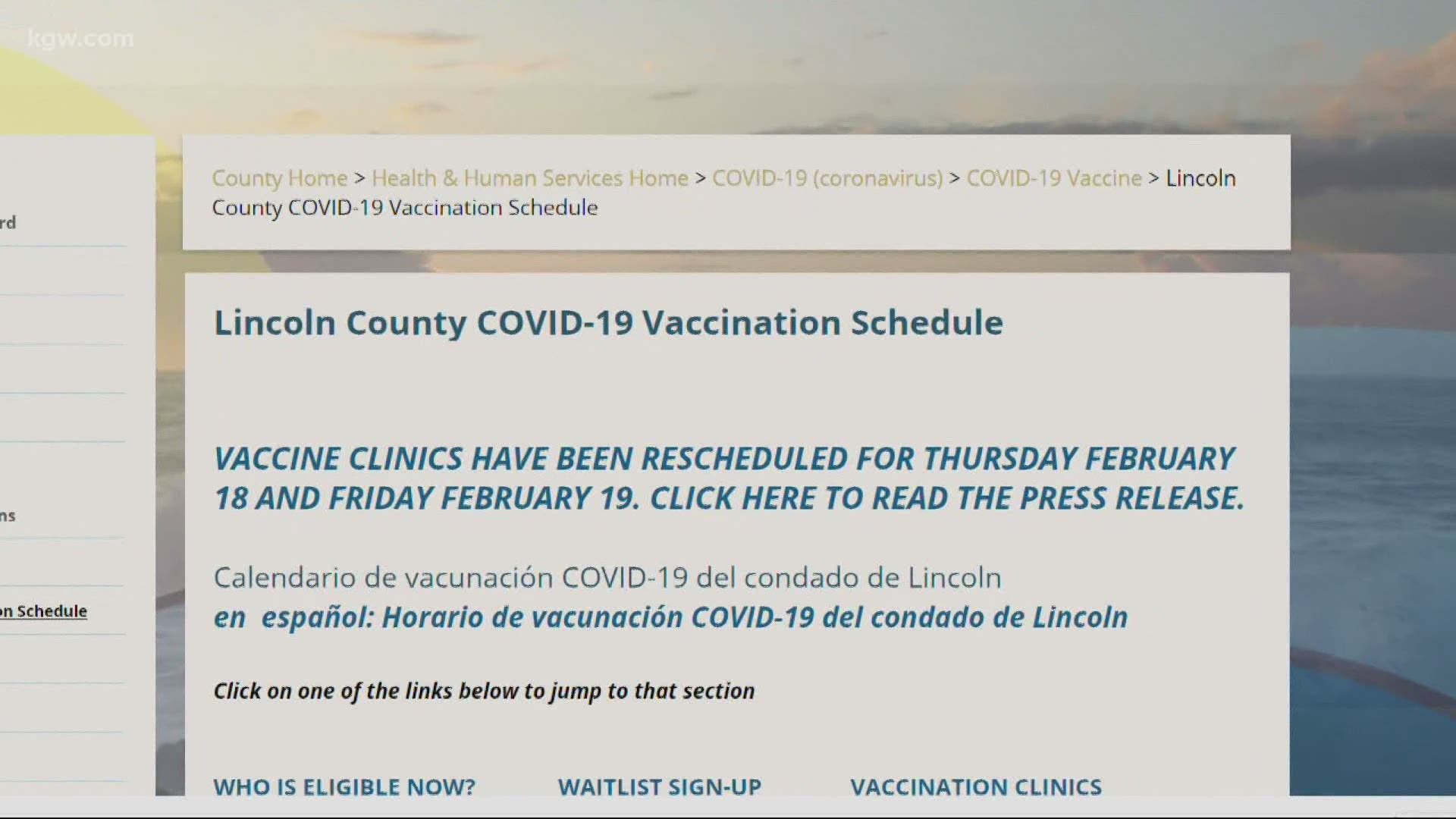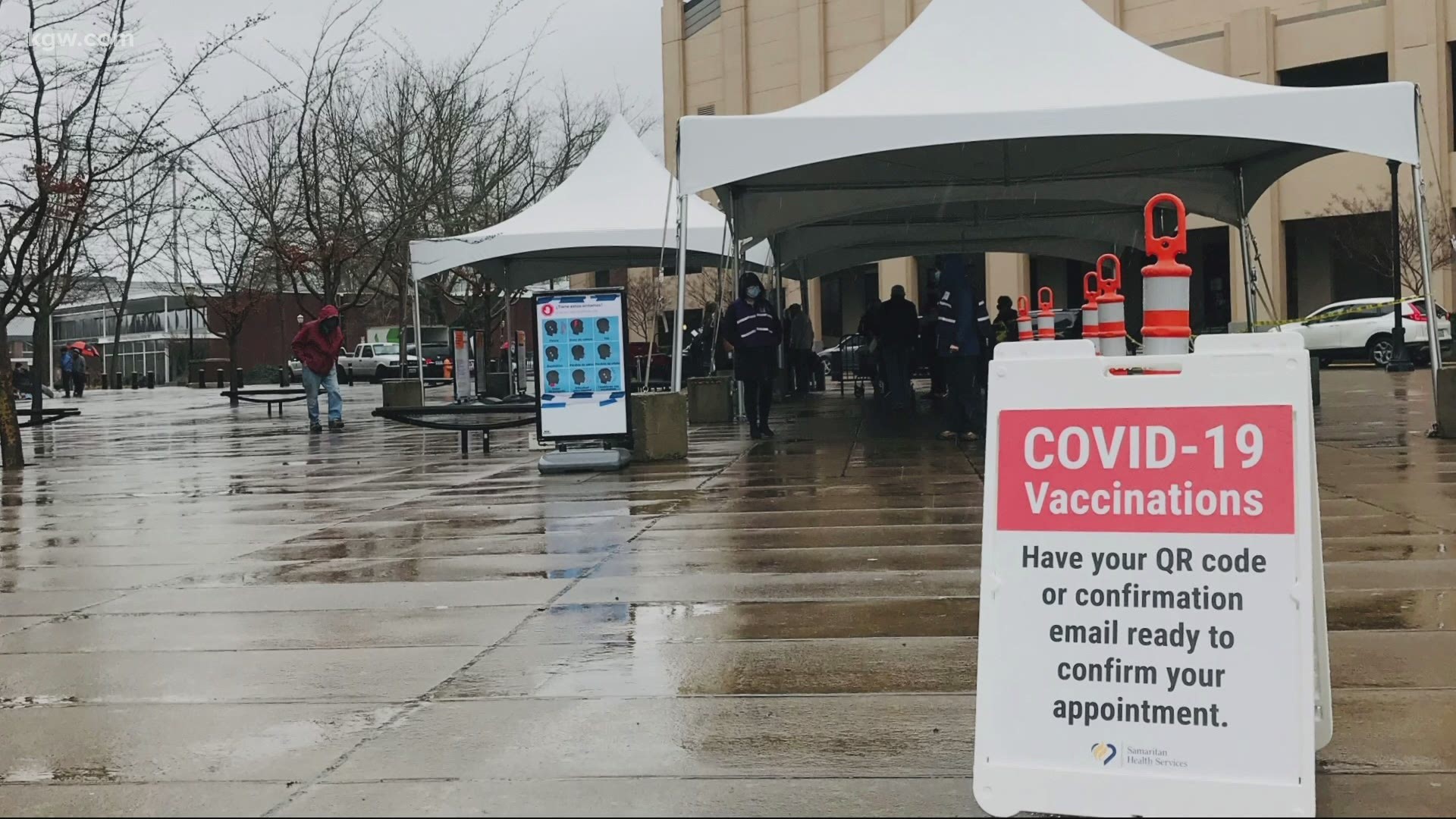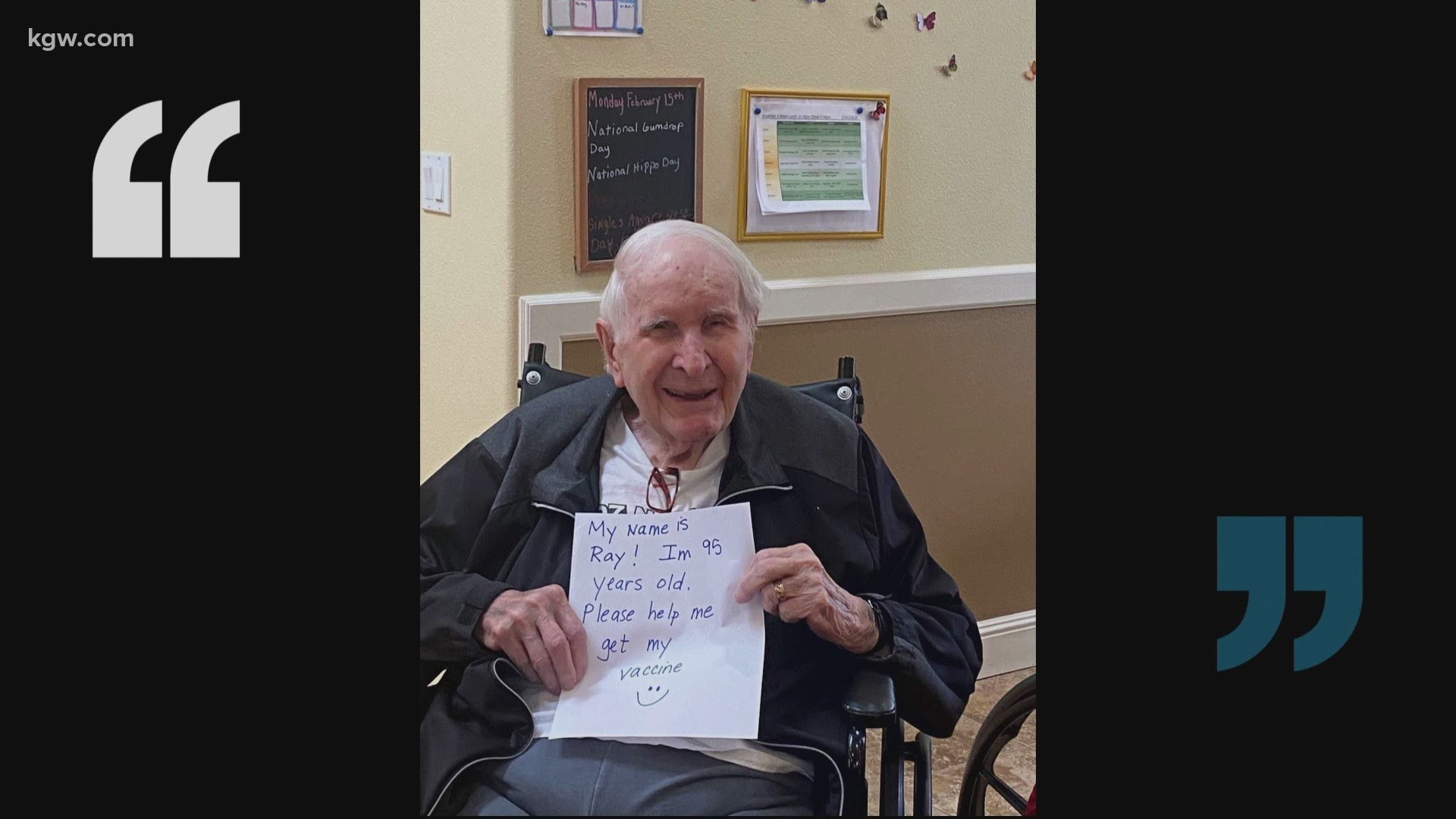How to get a COVID-19 vaccine in Oregon
As of Feb. 15, everyone in Phase 1A and groups one, two and three of Phase 1B is eligible for the COVID-19 vaccine in Oregon. That includes:
- Health care workers and first responders
- Long-term care residents
- K-12 educators and school staff
- Childcare providers
- People 75 and older
Oregon introduced an online tool that allows eligible residents of Multnomah, Washington, Clackamas, Marion and Columbia counties to sign up to receive a COVID-19 vaccine. The eligibility tool is open to everyone in Oregon to use and ask questions.
Another helpful resource is 211. People can call 211 and ask to be transferred to the reservation call center. Operators will determine eligibility, then book a time to receive the vaccination. People can also text ORCOVID to 898211 to get text/SMS updates or email ORCOVID@211info.org.
Shipment delay of 67K vaccine doses for Oregon sends some clinic organizers scrambling
A weather-related shipment delay has kept 67,000 doses of the Moderna COVID-19 vaccine from reaching all parts of Oregon this week, leaving vaccination clinic organizers racing to find backup supplies or rescheduling clinics to next week. In Corvallis, 700 people gathered at Reser Stadium Thursday for a mass vaccination event that almost did not happen.
About 5% of Oregon's population is fully vaccinated
The Oregon Health Authority said as of Thursday, 729,823 doses of COVID-19 vaccines have been given in Oregon, including 218,415 second doses. That means roughly 5% of the state's estimated population is fully vaccinated and close to 17% has received at least one dose.
Adult foster care homes feel left out of the vaccination process in Oregon
Adult care facilities were supposed to get the vaccine through a federal program but according to the Oregon Department of Human Services, only 172 out of 1,400 facilities signed up. Fred Steele, the governor's appointed long-term care ombudsman, said the state didn't do a good enough job communicating with the adult care homeowners on how to get their residents the vaccine.
Oregon parents & educators weigh in on CDC school reopening guidelines
School districts in Oregon are in the process of trying to get kids back in the classroom, and the Centers for Disease Control and Prevention (CDC) recently issued new guidelines to help districts make decisions on reopening. The CDC rules are similar to the guidelines in Oregon, in that they emphasize things like wearing a mask, hand washing and social distancing.
The new CDC guidance also outlines other factors to pay attention to, including community transmission rates. As for vaccines, it recommends teachers are prioritized, but getting a vaccine isn’t a prerequisite for reopening.
Extreme weather hampers vaccine deliveries, distribution in other states, too
An icy blast across much of the U.S. has led to confusion and frustration in COVID-19 vaccination efforts not just in Oregon, but in states across the country. Across a large swath of the nation, including Deep South states like Georgia and Alabama, the snowy, slippery weather either led to the closing of vaccination sites outright or held up the necessary shipments, with delays expected to continue for days.
VERIFY: Quarantine guidance for vaccinated people changed, does that mean they can't spread COVID-19?
Last week, the Centers for Disease Control and Prevention changed its guidance. Now, fully vaccinated people can avoid quarantine after a COVID-19 exposure if they meet certain criteria.
According to the CDC, the quarantine exception can happen if the person is fully vaccinated (had both doses in a two-shot vaccine series), had their final dose at least two weeks prior to exposure, but no longer than 3 months prior to exposure, and does not have symptoms.



